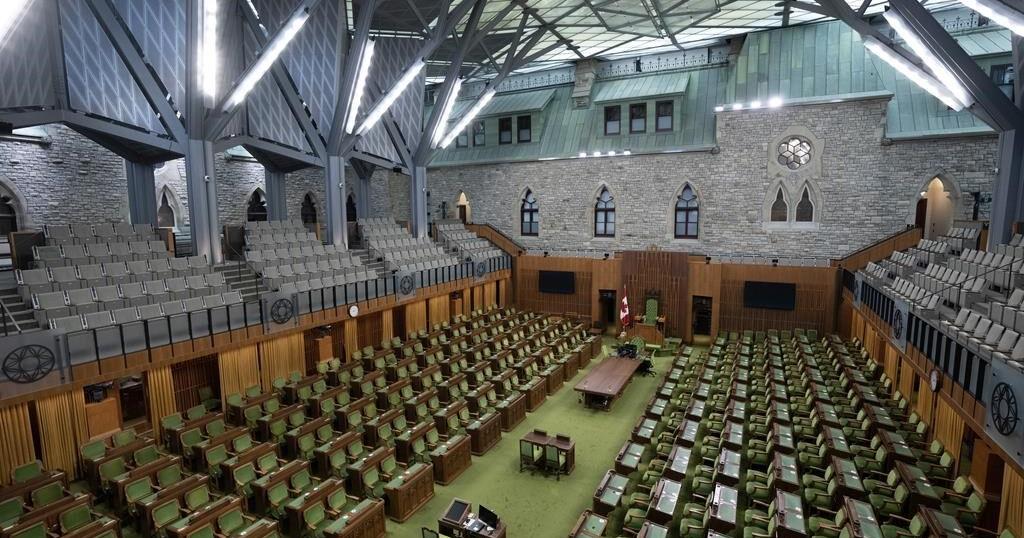OTTAWA – On Monday Parliamentarians will return to the familiar stone walls of West Block in Ottawa to find the political landscape has shifted significantly.
When they last gathered in the capital the Liberals knew their prospects were poor after languishing in the polls for more than a year, but they were secure in the knowledge the New Democrats would prevent them from toppling before they table the next budget, at least.
But the summer saw several seismic shifts that mean the government will now operate as a true minority that could fall to an election at any time.
NDP Leader Jagmeet Singh pulled out of a political pact with government just weeks ago, and already faces a challenge from Conservative Leader Pierre Poilievre to vote non-confidence in Prime Minister Justin Trudeau and his governing party.
The stakes are high for the NDP, whose electoral promise doesn’t appear to have improved drastically as a result of some of the legislation and programs they managed to extract from the Liberals as part of the deal, including a national dental-care plan and a pharmacare bill that’s currently making its way through the Senate.
The new dynamics open up new opportunities for the Bloc Québécois, whose leader Yves-François Blanchet has already signalled he’s willing to do business with the Liberals in exchange for his own list of demands that benefit Quebec.
The Bloc’s stipulations include the Liberals green lighting the party’s private member’s Bill C-319, which would bring pensions for seniors aged 65 to 74 to the same level as that paid to those aged 75 and over.
The Bloc need a royal recommendation from a government minister to OK the financial implications and get the bill through the House.
The Liberals meanwhile have said they eschew the political machinations opposition parties are hatching, and are focused instead on “delivering for Canadians.”
While the Liberals would no doubt prefer to work their key pieces of legislation through the House, including their pharmacare bill and controversial Online Harms Act, the other parties could make that progress difficult.
Singh has started to offer much harsher critiques of the prime minister and his government since breaking faith with the Liberals, but party insiders have suggested he isn’t any more keen for an election than Trudeau at the moment.
All parties will be tested Monday after MPs leave for the evening, when they’ll anxiously await the results of two crucial byelections.
The NDP and the Liberals are both trying to maintain strongholds as the political odds appear stacked against them. The results will set the tone in Parliament for the rest of the season.
The NDP are trying to fend off Poilievre’s Conservatives in the Winnipeg riding of Elmwood — Transcona and the Liberals are running a three-way race against the NDP and the Bloc in Montreal’s LaSalle—Émard—Verdun.
“I can’t wait for the conversations we’re having in (LaSalle — Émard — Verdun) this weekend, but also can’t wait to welcome Laura Palestini to Ottawa as of Monday,” Trudeau said, projecting positivity about the prospects of his Liberal candidate in the Montreal riding Friday.
Trudeau faced calls from Liberal party faithful to step aside as leader after his last byelection loss in Toronto — St. Paul’s in June. Those calls seemed to simmer down over the summer.
Though Liberal MPs were quick to deny that the race in Montreal is a referendum on his leadership when they retreated to Nanaimo last week to talk strategy, that is largely how the vote is being viewed elsewhere in Ottawa.
Singh could face similar scrutiny if he loses the long-held NDP seat in Winnipeg and fails to take the Montreal riding from the Liberals.
The Conservatives are expected to meet in Ottawa this weekend to discuss their plan for the fall sitting, and how they can wedge their opponents into calling that sitting short.
This report by The Canadian Press was first published Sept. 14, 2024.
